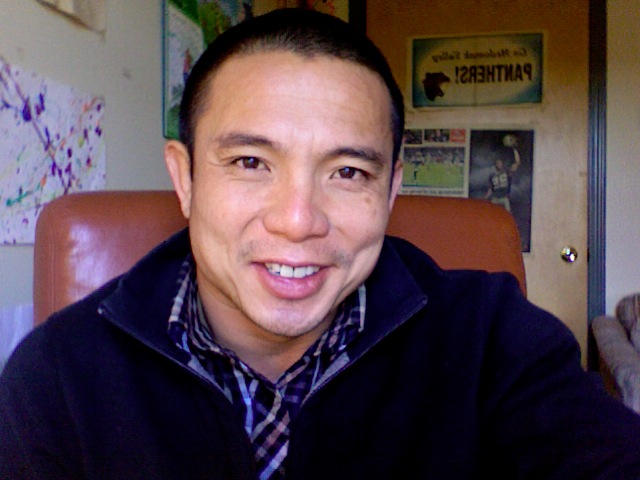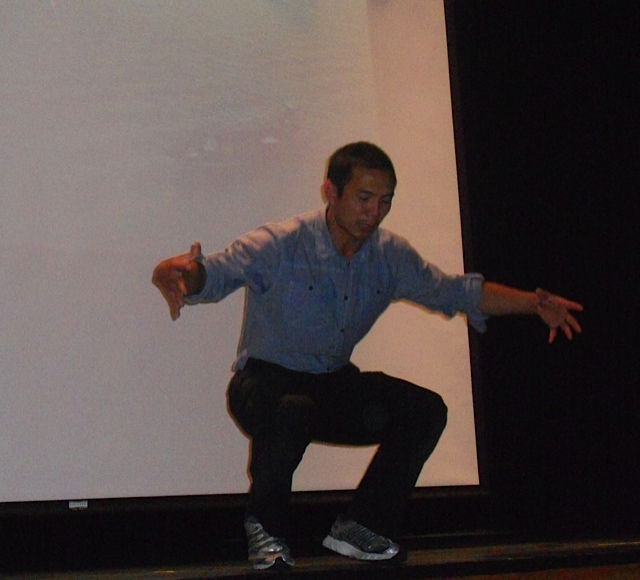
We cannot under estimate the power of the human spirit … A door closed is an opportunity to knock on new ones …
1. What led you to the mission of being a high school social worker and anti-bullying educator?
My family and I escaped from our war-torn country of Vietnam when I was nine years old. Our new home in America was New Orleans. After being on welfare for a few years, my mom worked two jobs and was able to send me to a Holy Cross School, a catholic prep school for boys. This was where I learned about the dedication to service by the Holy Cross Brothers. The Brothers not only inspired me to participate in the school and community organization activities such as student sports, but service-oriented groups like student council and volunteer organizations like the Key Club. Being one of the few Asian kids at school, I learned early about embracing who I was — even if it was scary or if others didn’t understand or accept me.
I finally decided I could run for Student Body President during my senior year. I wanted to serve and be a worthwhile member of the school. There was a kid who was running against me. He blatantly made a racist comment about how I came on a banana boat. I kept my cool and in front of whole school I countered by saying the “banana boat” got me here so I can do things like win this election. The student body elected me with 70% of the vote.
I got into social work eventually and worked in housing projects, Big Brothers Big Sisters, human service, and even in a prison setting. But it is in an educational setting that I find most fulfilling. Everyday I see kids who remind me of that big school and the little Asian kid waiting for the opportunity to serve and be something. I love speaking to students across Maine and New England about the “Power of Water”. It is a great metaphor for kids to remember when they are  dealing with bullying and obstacles in their lives.
dealing with bullying and obstacles in their lives.
Here is recent article about the presentation:
2. What does this mission mean to you?
My daily work with disadvantaged kids with emotional disabilities is an important mission in my life. These are the kids that can contribute if you empower them and advocate for them. Once they feel like they can contribute, their self-worth takes off. I work with special educators and administrators on how to best empower and intervene with these kids and to do this without using humiliation and shame. When all things fail, I remind adults what the Dali Lama teaches, “Our main job is to help others, if we can’t, at least don’t hurt them.”
When I present the Power of Water at school assemblies, I love the energy and appreciation kids show me. I think they appreciate it so much because the issues are relevant to them. We teach math, science, and reading all day. How often we get to speak to kids about their resiliency and spirit? It is probably the most important skill for kids if you want them to do well in school and life. There is nothing profound we need to do to boost a young person’s sense of self or how much he or she can determine. Simply, it goes back to the basic needs of relationship. What is needed is to invest time and interest in speaking to a kid about how they are doing and that they are appreciated for whom they are and what they are trying to do.
3. What was your best day as a high school social worker and anti-bullying educator?
My best days are when I get an email or Facebook message from a student I worked with or spoke to. They tell me that they remembered what I shared and to be like water.I mentioned that there is nothing profound we need to do to change a young person’s life.
I got a note from a young lady who graduated recently. She struggled with depression all her life and coped in some pretty hurtful ways. Her family was supportive and there was nothing profoundly wrong with her life. She tried hard to overcome by being involved in sports and activities. The depression raged on. At one point she thought about giving up. It was scary to support a person in this much pain, but I had to be like water. I never gave up on her and I kept calling her in my office to “visit”.
This young lady wrote to me and said how much she appreciated my efforts and that she finally chose to be happy and live life well — even with depression. She did this because so my people believed in her. She was just not ready to believe in herself at the time. What would have happened to this young person if the adults in her life had stopped making the effort?
4. What was your worst day as a high school social worker and anti-bullying educator?
My worst days are when I go home and worry about young people like the young lady I mentioned above. Sometimes I present in three schools in one day and this is exhausting. But this is a good type of exhaustion. Also, I do a lot of mediation for students and there are days when the conflicts are so great, I feel like throwing up my hands and asking, “Where do I begin?”
5. How did you survive your worst day?
Since I teach others to be resilient and be determined like water, it is only fitting that I try to live up to what I preach. I remind myself after a hard day that we cannot under estimate the power of the human spirit to overcome. Kids are incredibly great at reminding us of this. I also believe the Universe is giving us what we need and more importantly what we don’t. If something does not work out I try to tell kids and myself that a closed door is an opportunity to knock on new ones.
- « Previous person: Susan Clark
- » Next person: Susan Barrett Merrill